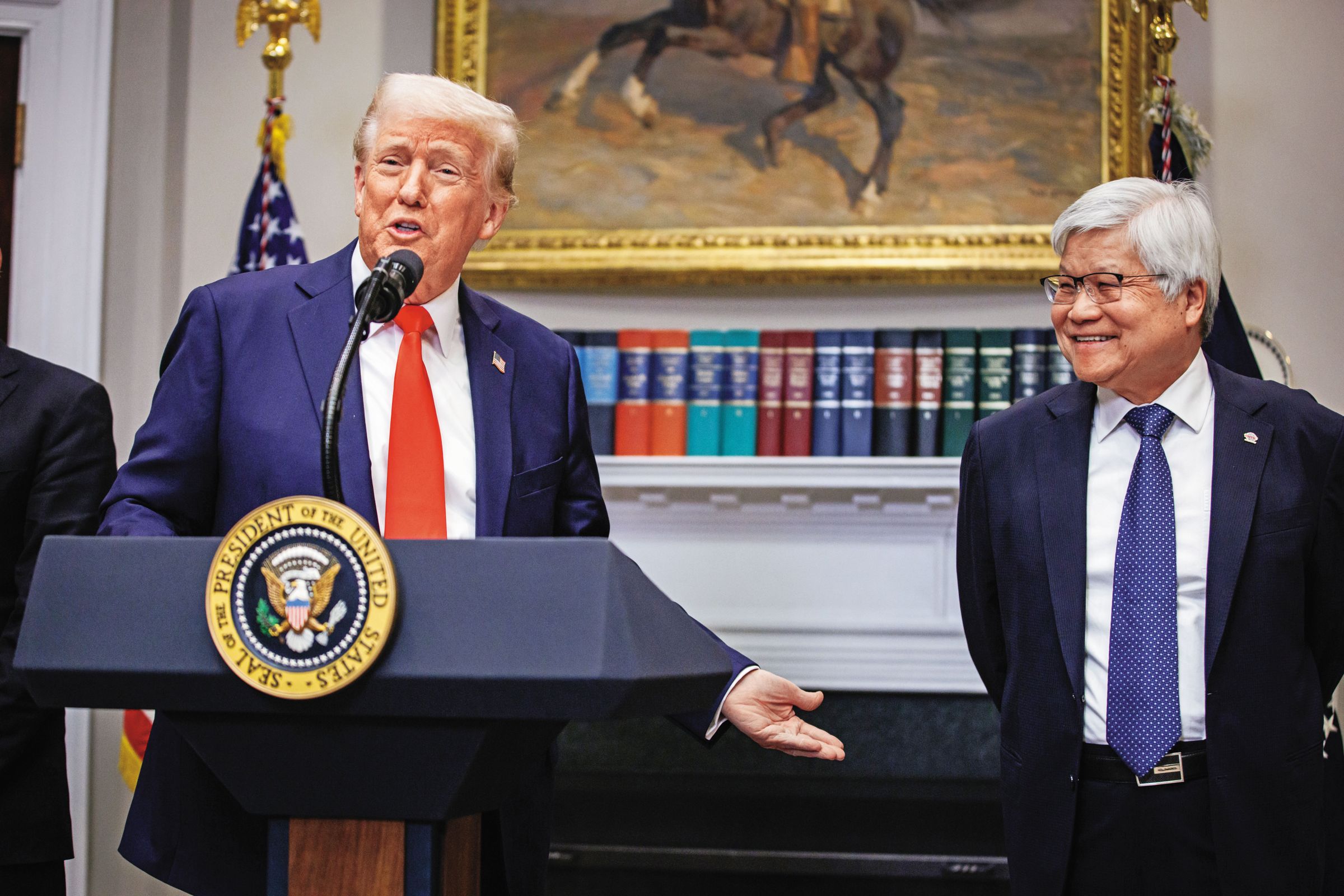"The current US administration, led by President Donald Trump, has employed trade tariffs as the primary way to reduce the US's trade deficit with partner countries. However, the US tariff policy has been erratic and unpredictable. These tariffs have also affected Taiwan, one of the US’s biggest trading partners.
Currently standing at 20%, the US trade tariff on Taiwan is more than that of countries like Japan, which pays a baseline tariff of 15%. Unsurprisingly, a 20% levy on Taiwanese exports to the US will hurt Taiwanese businesses quite a bit, which is why the country needs to negotiate further with the US to bring the tariffs down or downright eliminate then. However, according to a new report out of Taiwan, US President Trump has presented Taiwan with two conditions for tariff relief, both of which are quite stringent.
Per the Taiwanese outlet mnews.tw, an industry source told the publication that President Donald Trump has mandated TSMC fulfill two conditions if Taiwan is to see any tariff reduction:
So, President Trump’s alleged condition of investing a further $400 billion in the US alongside buying a stake in Intel seems improbable from a purely financial standpoint.
Intel is a vital part of the US’s plans regarding domestic semiconductor manufacturing. As such, the company has already received billions in federal grants. However, this funding has not solved Intel’s troubles, as the company has delayed its Ohio fab from an initial target of 2025 to 2030/31. A primary reason for this delay seems to be Intel’s efforts to preserve capital resources amidst a lack of significant help from the US CHIPS Act and outside partners.
In short, the US administration seems to be pressuring TSMC to acquire a considerable stake in Intel to inject some much-needed capital into the company and keep the US government's plans of a domestic chip supply chain afloat. However, TSMC is unlikely to agree to this proposal.
It'd be interesting to see what happens to Intel the coming months. Intel has a few exciting products in the works with Panther Lake and Nova Lake CPUs. So, things could improve for Team Blue if these products deliver."

 www.notebookcheck.net
www.notebookcheck.net
Currently standing at 20%, the US trade tariff on Taiwan is more than that of countries like Japan, which pays a baseline tariff of 15%. Unsurprisingly, a 20% levy on Taiwanese exports to the US will hurt Taiwanese businesses quite a bit, which is why the country needs to negotiate further with the US to bring the tariffs down or downright eliminate then. However, according to a new report out of Taiwan, US President Trump has presented Taiwan with two conditions for tariff relief, both of which are quite stringent.
Per the Taiwanese outlet mnews.tw, an industry source told the publication that President Donald Trump has mandated TSMC fulfill two conditions if Taiwan is to see any tariff reduction:
- Buy a 49% stake in Intel
- Invest a further $400 billion in the US
So, President Trump’s alleged condition of investing a further $400 billion in the US alongside buying a stake in Intel seems improbable from a purely financial standpoint.
The US is trying to save Intel from collapse
Intel is on the decline. From the company’s fab operations to consumer products, virtually every Intel department is taking a hit. This has shown in the company’s reported annual revenue figure, which has come down from a high of $79 billion in 2021 to $53 billion in 2024, is a massive 33% reduction.Intel is a vital part of the US’s plans regarding domestic semiconductor manufacturing. As such, the company has already received billions in federal grants. However, this funding has not solved Intel’s troubles, as the company has delayed its Ohio fab from an initial target of 2025 to 2030/31. A primary reason for this delay seems to be Intel’s efforts to preserve capital resources amidst a lack of significant help from the US CHIPS Act and outside partners.
In short, the US administration seems to be pressuring TSMC to acquire a considerable stake in Intel to inject some much-needed capital into the company and keep the US government's plans of a domestic chip supply chain afloat. However, TSMC is unlikely to agree to this proposal.
It'd be interesting to see what happens to Intel the coming months. Intel has a few exciting products in the works with Panther Lake and Nova Lake CPUs. So, things could improve for Team Blue if these products deliver."

Desperate measures to save Intel: US reportedly forcing TSMC to buy 49% stake in Intel to secure tariff relief for Taiwan
A new report out of Taiwan has revealed that the current US administration is tying the reduction on trade of trade tariffs on Taiwan to significant TSMC investment in the US. This investment includes a 49% stake in Intel.
 www.notebookcheck.net
www.notebookcheck.net



